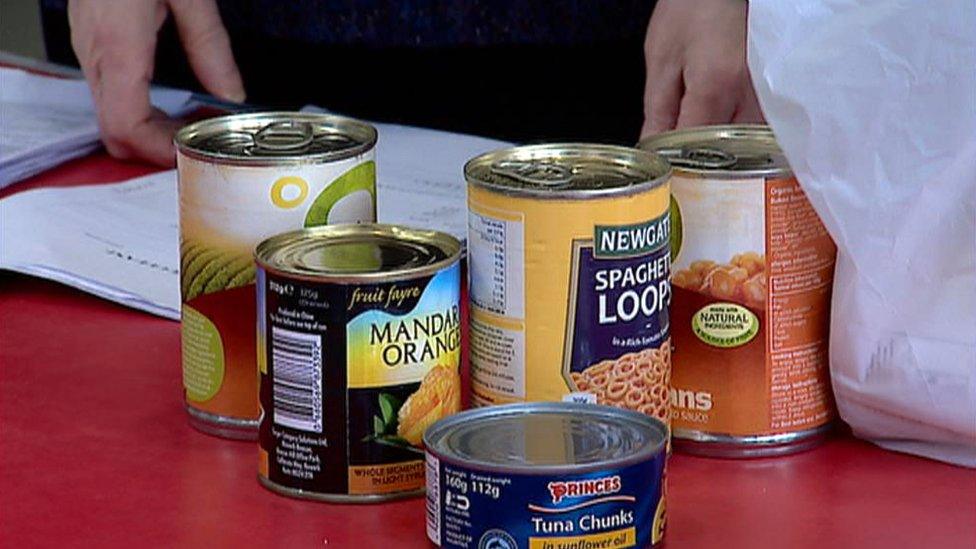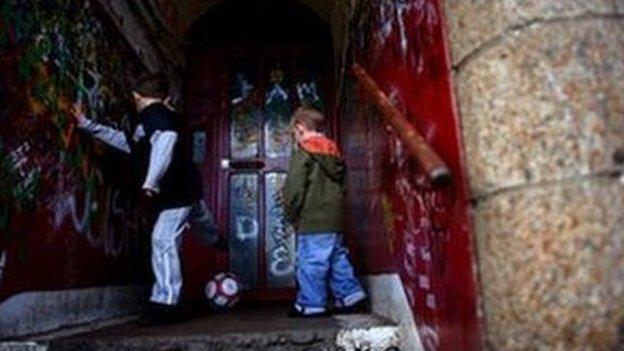One million Scots 'cannot afford adequate housing'
- Published

The authors of the study calculated that 800,000 people are too poor for "common social actitvities"
Nearly one million Scots cannot afford adequate housing, a new study claims.
The percentage of households falling below society's minimum standard of living has also increased from 14% to 33% over the last 30 years.
The findings, from the largest study of poverty ever conducted in the UK, come despite the size of the economy doubling.
More than 250,000 people aren't properly fed, according to the Poverty and Social Exclusion (PSE) project.
The study compares people's actual living standards with the minimum standards which the public thinks everyone should have.
It claims 800,000 people are too poor to engage in common social activities.
The report shows there is slightly less poverty in Scotland than the rest of the UK - 18% of children and adults in Scotland were poor at the end of 2012 compared with 22%.
Researchers from universities across Britain, including Heriot-Watt and Glasgow, found that in Scotland:
Over 400,000 adults go without essential clothing
More than 200,000 children live in homes that are damp
Nearly one in three people (30%) cannot afford to heat their homes adequately in winter
About 350,000 children live in cold homes in winter and 50,000 children live in households that cannot afford to heat their home
Nearly one in four adults has an income below what they consider is needed to avoid poverty
One in every eight (13%) adults in paid work is poor
One in five adults has had to borrow in the last year to pay for day-to-day needs.
The findings will be discussed later at an Edinburgh conference which has been jointly organised by the PSE team and the Scottish government.
Prof Nick Bailey, from the University of Glasgow, claimed the study proved Westminster and Scottish government attempts to tackle poverty had failed.
He said: "The UK government continues to ignore the deep problems in the Scottish and UK labour markets.
"They do not have adequate policies to address this growing problem. UK and Scottish governments both need to do more."
Prof Glen Bramley, from Heriot-Watt University, added: "It is worrying that, in the 21st Century, more than 40% of households who want to use meals on wheels, evening classes, museums, youth clubs, citizens' advice or special transport cannot do so due to unavailability, unaffordability or inadequacy."
- Published11 August 2014

- Published1 July 2014

- Published10 June 2014
